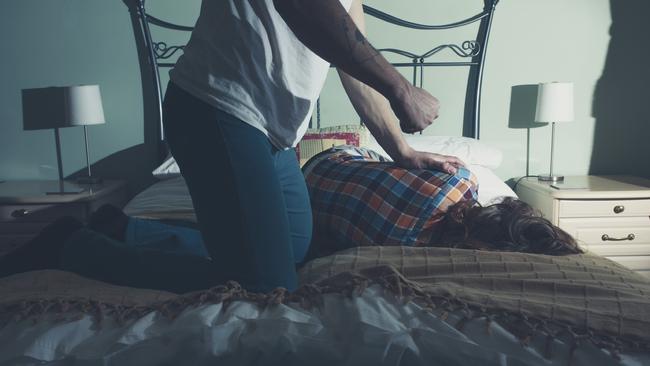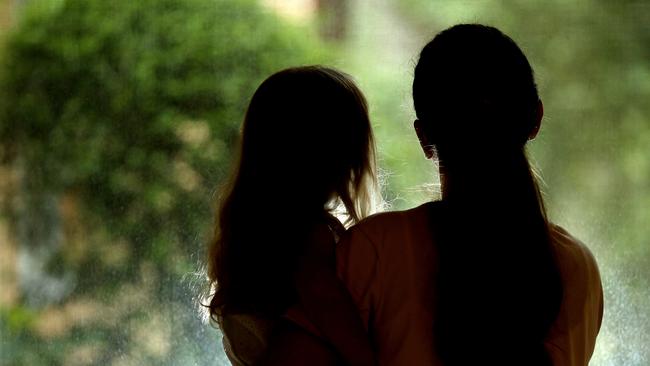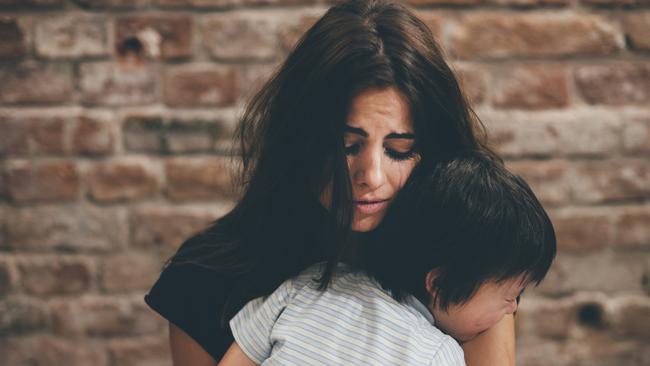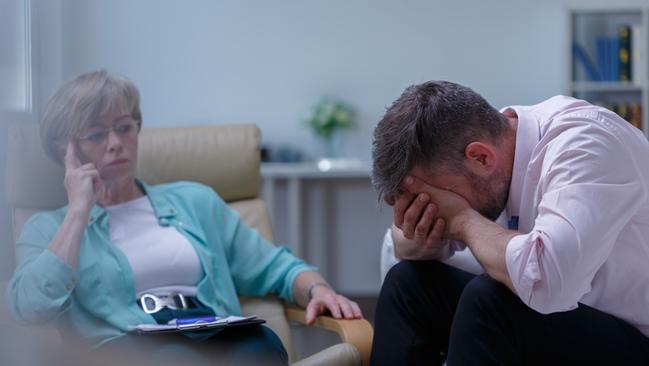Male violence: How do we fix it?
THE solution to reducing Australia’s male violence epidemic is so simple, it’s almost embarrassing to voice it, writes Sherele Moody.

Rendezview
Don't miss out on the headlines from Rendezview. Followed categories will be added to My News.
AUSTRALIA, it’s time we grabbed a cuppa, pulled up a stump and had a chat about the brutal problem that’s tearing our communities apart and the simple way to fix it.
But before we start, here is a recap of the past week (in case you missed it).
Thursday, April 20: A woman dies of stab injuries in South Australia.
Friday, April 21: A man died after being stabbed in Whyalla and a 47-year-old woman was hospitalised after being bashed with a hammer and stabbed multiple times in Northern NSW.
Sunday, April 23: A 78-year-old woman was found murdered in her Melbourne home and a teenager was left fighting for her life after being bashed In Ipswich.
Monday, April 24: A Tasmanian woman is in a critical condition with burns to more than 50 per cent of her body.
Tuesday, April 25: A mum is shot dead by her male partner who then kills himself.
These crimes are not related but they all have the same chilling threads — the victims and the alleged perpetrators were related or known to each other.
Before you say “But women do it too”, let’s have a small recap of the year in murder.
Since January 1, 66 men, women and children have died violently across the nation.
Men are alleged to have committed 53 of these killings and women have been charged with eight. Police are still investigating five.

Wait, did I hear you say “Yes, but Australian Bureau of Statistics data shows domestic violence kills one man every 10 days so the problem of female violence is a massive issue”?
You’re quite right, the ABS does have data that shows one man dies at the hand of a family member every 10 days (on average).
But family member does not automatically mean female partner — it means anyone who is related to the victim.
Let’s keep this in mind as we further analyse this year’s murder statistics.
Of the 66 deaths this year, 39 of the victims were male, 20 of the victims were female and eight were children.
Men have allegedly killed 30 men, 19 women and five children. Most of the assailants were related or known to the victims.
Women have allegedly killed four men, one woman and three children they were either related to or knew.
Before I go any further, I should point out that these statistics are the only real-time source of murder data in Australia and they are collected by 10 female volunteers working under the title of the Femicide Australia Project. I am one of those volunteers.
There is no doubt that the murder of any Australian by any person is abhorrent. There is absolutely no escaping the fact that every life is valuable and no man or woman has the right to end another’s life.

But if we’re to lower the toll of violence in this country we need to start working on the problem that is the greatest and that is male violence.
So how do we fix it?
Well, there’s no doubt that we need strong perpetrator programs and luckily we already have these — Heavy M.E.T.A.L Group and Relationships Australia are just two of the many services available to abusers.
We also need to start teaching kids about respecting all people from an early age.
Adults have to lead by example and stamp out any sexism or sexist behaviour at home and in the community.
Schools need to be funded to provide excellent relationships and anti-bullying programs and of course more money must be invested in support services for victims of all genders and ages.
And when we see male violence we need to take action by phoning the cops, telling the abuser that this behaviour is just not acceptable and ensuring we offer a helping hand to victims instead of making them bear the blame for another’s violence.
Each and every one of us needs to acknowledge that while not all men are violent, Australia does have a male violence problem. If we name it, we can eliminate it.
All of this is important, there’s no doubt about that.
But the thing that can turn around Australia’s shameful male violence problem is so simple that it’s almost embarrassing to have to say it — own your problem.
That’s right. Violent men need to own their problem. They need to look at what makes them angry, controlling and brutal and work out ways to end it.

Most people will tell you they get angry. Some people — myself included — will concede that there are times when the compulsion to punch a wall or throw a plate is almost overwhelming. And that’s OK.
What’s not OK is allowing yourself to commit violence.
Find yourself an outlet for your anger. If you feel the rage building, go for a long walk and breathe deep. Then get your phone out of your pocket and start dialling. Ask your GP for a mental health plan. Phone Relationships Australia and join an anger management program, phone your partner and tell her that you’ve got the shits and you won’t be home until you’ve calmed down.
It’s not hard — millions of Australians lose their temper everyday but only a few make the leap from emotional turmoil to murder. If the rest of us can control ourselves, so can violent men.
For 24-hour support phone Queensland’s DVConnect on 1800 811 811 or MensLine on 1800 600 636, NSW’s Domestic Violence Line on 1800 656 463 or the national hotline 1800 RESPECT (1800 737 732).
Sherele Moody is a journalist with News Corp Australia and the founder of The RED HEART Campaign which shares stories of domestic violence survival.
Originally published as Male violence: How do we fix it?


